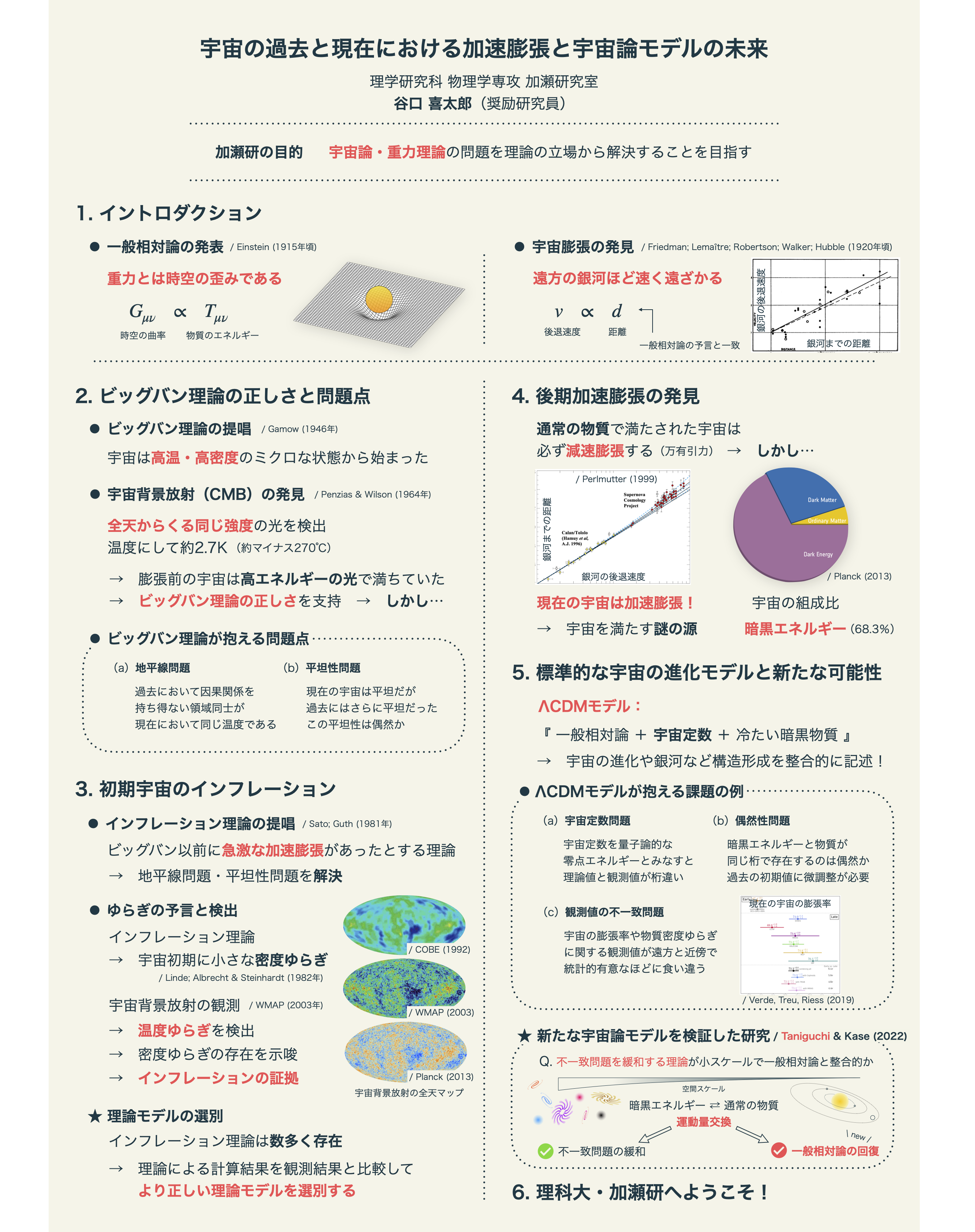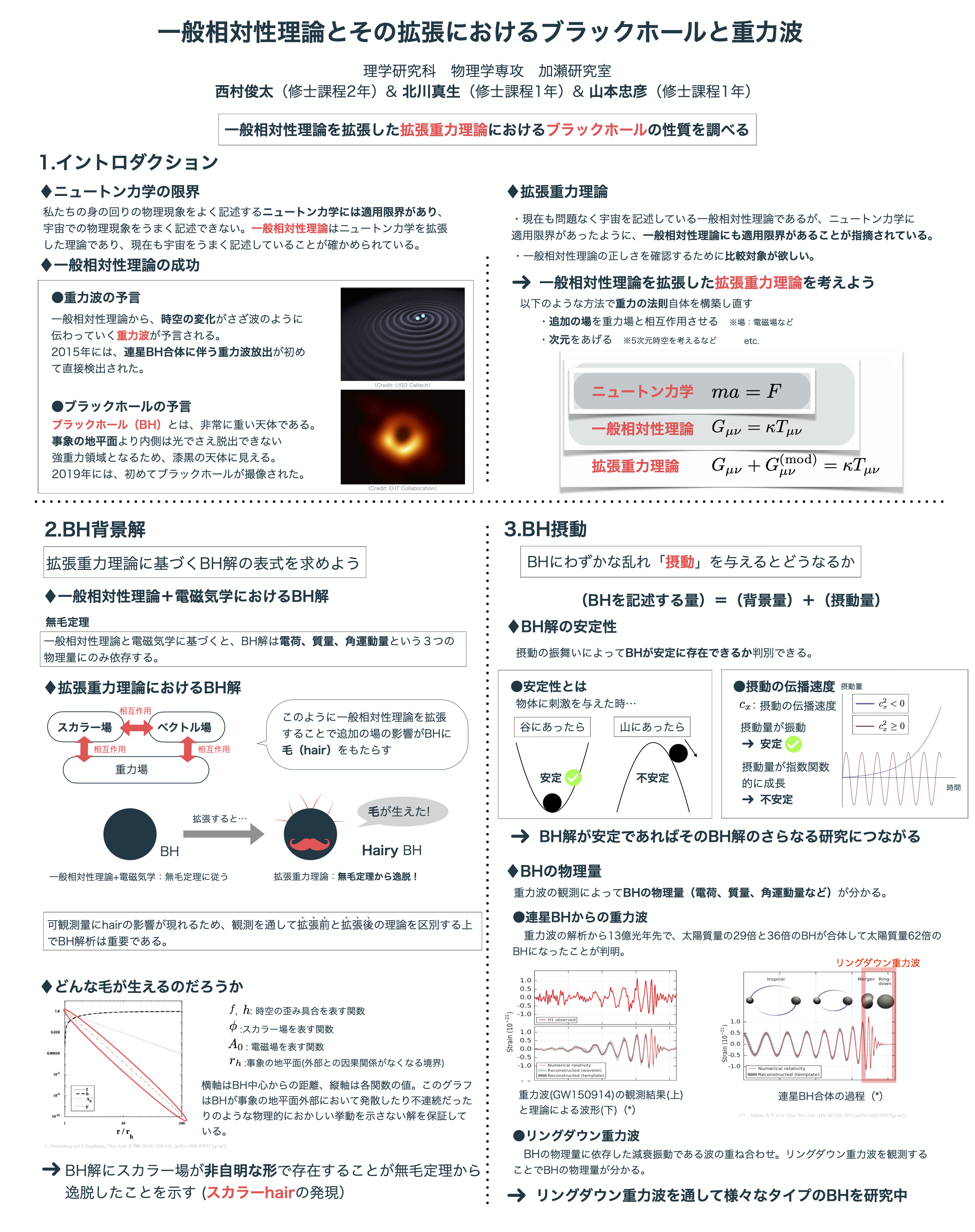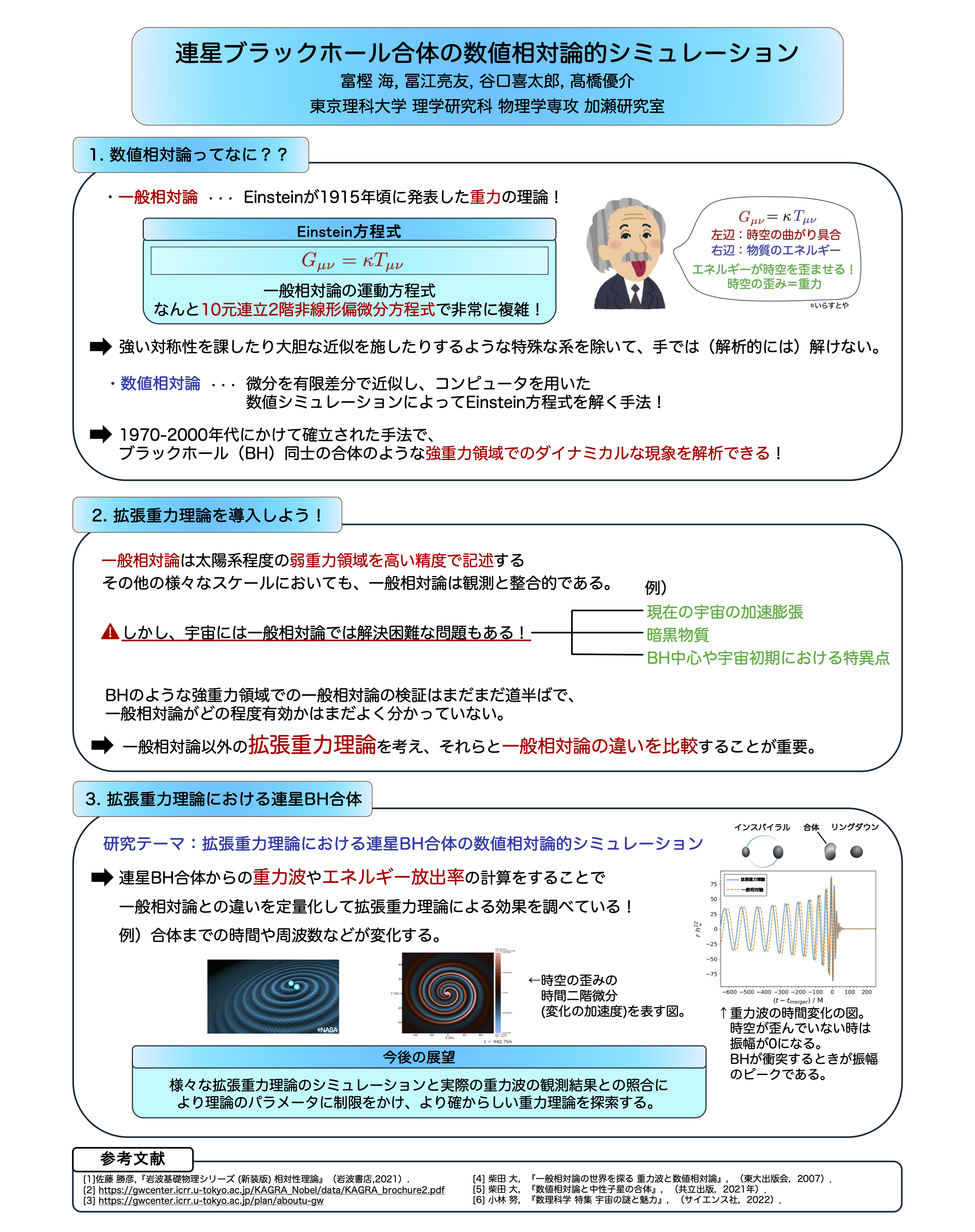Affiliation
- Tokyo University of Science
- Undergraduate:
Department of Physics, Faculty of Science Division II
(Original website of the faculty) - Graduate:
Department of Physics, Graduate School of Science
Research
- research area:
- cosmology / gravity theory
- keywords:
-
dark energy / black hole / neutron star / gravitational wave / numerical relativity
1. Our objective
To clarify unsolved problems in cosmology and gravity theory theoritically
2. Research theme
Approximately 70% of the current universe is composed of dark energy, the unknown energy that causes the accelerated expansion of the universe. Since the discovery of the accelerated expansion of the universe through the observation of supernovae in 1998, dark energy has been actively studied around the world, but its origin is still unknown. While some attempts have been made to explain dark energy by unknown matter based on analogies in particle physics, others have attempted to explain dark energy by modifying the theory of gravity on a macroscopic scale. The gravitational theory underlying the description of the universe is general relativity, and it has been verified that general relativity holds with good accuracy in local regions such as the solar system. However, the accuracy of general relativity on the macroscopic cosmological scale is still unknown, and attempts to explain the accelerated expansion of the universe by extending gravity theory are being actively studied around the world.
Extensions of general relativity are also discussed on the microscopic scale. For example, based on general relativity, a singularity where divergence of curvature occurs at the center of a black hole theoretically appears and cannot be treated physically. This indicates the existence of an applicability limit of general relativity and suggests the need for a theory that goes beyond this limit. On the other hand, the arrival of new observations in recent years has opened a new window for physics and gravity theory verification in strong gravitational fields. For example, the observation of gravitational waves, which has been actively conducted since their first direct detection in 2015, has given us new "eyes" to see the universe, whereas we had previously observed the universe only through light. However, the gravitational waves currently observed are emitted from the coalescence of binary stars formed by black holes and neutron stars, and a detailed investigation of this phenomenon requires consideration of a region with very strong nonlinearities just before the coalescence that are difficult to handle analytically. For this reason, numerical relativity, a large-scale numerical simulation, is becoming increasingly important. In 2019, the Event Horizon Telescope Collaboration reported the successful imaging of a black hole shadow. This observation has made it possible to test physics in the extremely strong gravitational field formed by black holes. These and new observations in the next generation will provide hints to illuminate the true theory of gravity.
There are many unsolved mysteries in the universe and the theory of gravity. In order to elucidate these mysteries, it is necessary to frankly exchange opinions across theoretical and observational boundaries, and to promote research with a long-term perspective without being bound by existing frameworks. With the above background, our laboratory is divided into three groups: the Cosmology (C) group, the Compact Star (CS) group, and the Numerical Relativity (NR) group, which conducts research on general relativity and its extension to gravity theory using the latest observational data. The Cosmology group focuses on dark energy and inflation, the Compact Objects group on black holes and neutron stars, and the Numerical Relativity group on black hole binary star mergers.
The posters presented by each research group at the 2025 Laboratory Presentation Event can be viewed below (click on the image to open in a new tab).



Graduate school
Ryotaro Kase is a research supervisor in the Department of Physics, Graduate School of Science, Tokyo University of Science. Whereas undergraduate research aimed to form the foundation for access to cutting-edge cosmology, graduate research aims to plunge into the frontiers of astrophysics that have been pioneered by researchers around the world, to produce novel results, and to push the boundaries of the field. 15 students have received their master's degrees and 2 students have received their doctoral degrees from the laboratory since its establishment in 2020.

